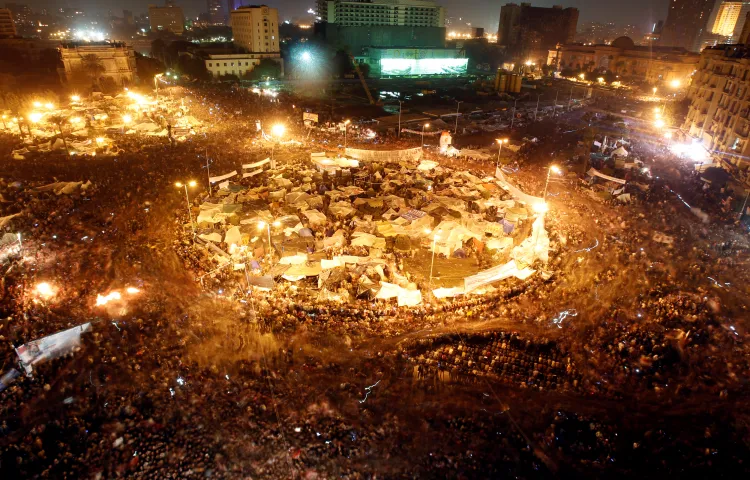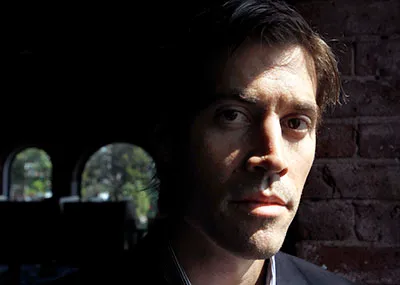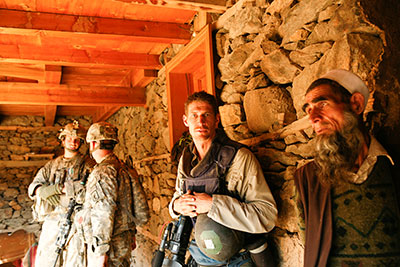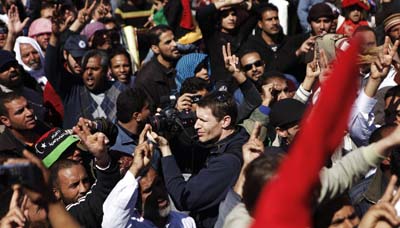
Ten years after the Arab Spring, the region’s media faces grave threats. Here are the top press freedom trends
In early February 2011, Alaa Abdelfattah was in Egypt’s Tahrir Square, documenting and participating in the nascent pro-democracy uprising that would topple the government and transform the country and the region. Today, he is in prison on anti-state and false news charges, which his family believes are partly retaliatory for his work. Abdelfattah is one of…
Infographic: Islamic State’s assault on the press
When Mosul fell to Islamic State on June, 10, 2014, it sparked one of the biggest attacks on press freedom in recent times. Newspapers were shuttered, TV channels were ransacked, radio stations disappeared from the airwaves, and dozens of journalists vanished. Within days, the militants had a monopoly on information output.
Journalists and international humanitarian law
One of the most important protections that journalists operating in a conflict zone are afforded is their status as civilians. This means they cannot be deliberately targeted, and cannot be taken prisoner by the warring factions. Under the Geneva Conventions journalists are only entitled to this protection “provided that they take no action adversely affecting…

James Foley – a journalist’s journalist
Amid the tributes and war stories that followed the brutal beheading of James Foley this week, one memory from a fellow hostage shone a light on a side of his character that his audience might not have seen: his empathy not only for the people he covered but also for the journalists he encountered.

Two years after his death, Hetherington studied, celebrated
Two years ago this week, on the central boulevard of the Western Libyan city of Misurata, freelance photographers Tim Hetherington and Chris Hondros were killed by mortar rounds from government forces. Hondros lost consciousness almost immediately. Hetherington bled out in the back of a pick-up truck as he clutched the hand of a Spanish photographer.

At Bayeux, war correspondents stress duty to report
Syria and Libya were the main themes at the 19th edition of the Bayeux-Calvados Prize for War Correspondents, which took place this weekend in the historical city of Bayeux, a few miles away from the Normandy beaches where Allied forces landed in June 1944 to liberate Europe from the Nazi yoke.

Safer mobile use is key issue for journalists
As the Internet and mobile communications become more integrated into reporters’ work, the digital threats to journalists’ work and safety have increased as well. While many press reports have documented Internet surveillance and censorship–and the efforts to combat them–mobile communications are the new frontline for journalist security.

For conflict journalists, a need for first-aid training
Stop the bleeding. It’s a critical and fundamental step in aiding a journalist or anyone wounded in conflict. Hemorrhage is the number one preventable death on the battlefield. And yet large numbers of journalists covering wars and political unrest all across the world are untrained in this life-saving skill. It doesn’t need to be that…
To quote Marie Colvin: ‘What is bravery, and what bravado?’
Not since the worst period of the Iraq war, or in the Balkans the decade before, have so many storied journalists been killed or seriously injured in such a short period of time. Inevitably, the spate of deaths leaves many journalists asking questions about whether and how much they are willing to risk their own…